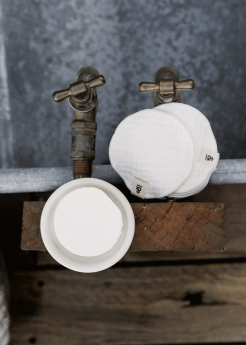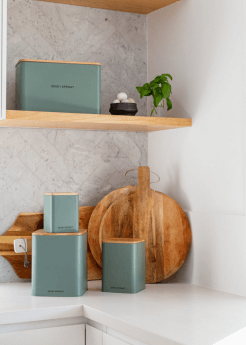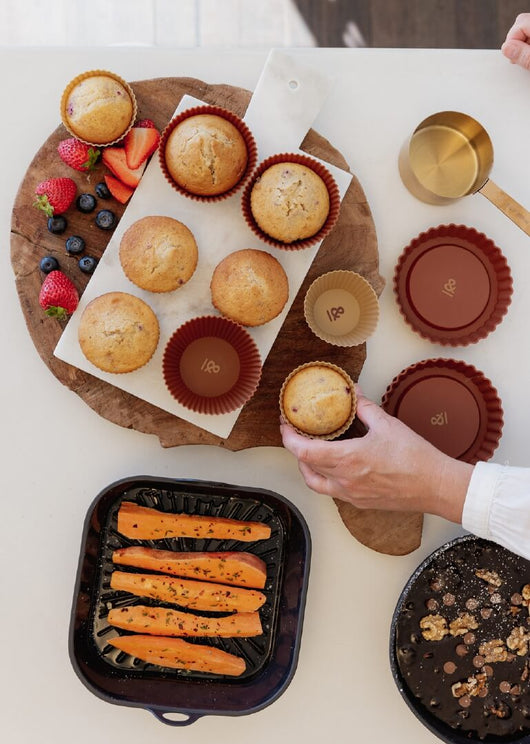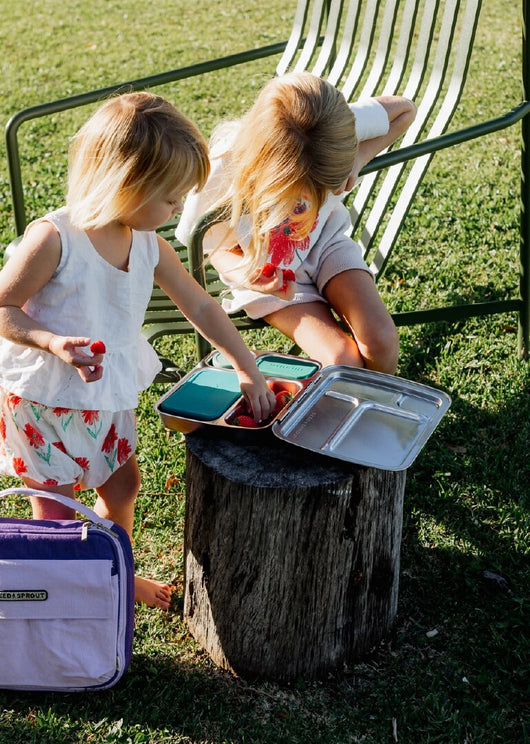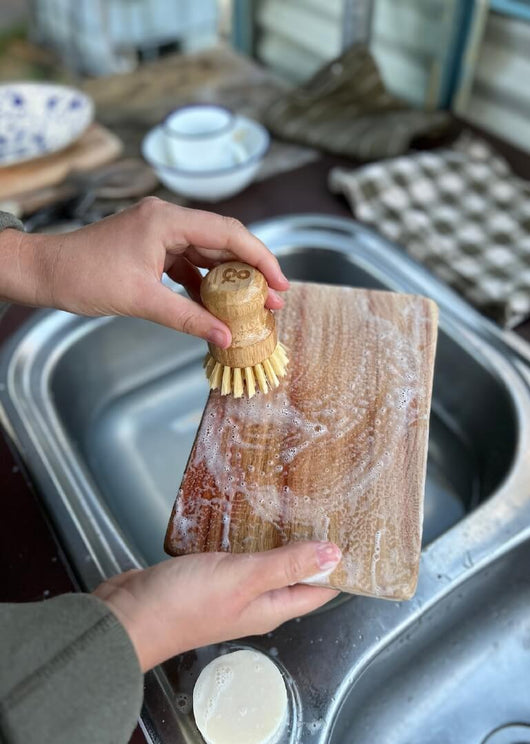We know how hard it can be when someone in your household has a food allergy - half of our staff are in that EXACT same position!
Read on for our tips on organising your kitchen and the equipment you need to minimise risk to allergens whether it's nuts, gluten, dairy or any other allergy.
TIP 1: Separate Chopping Boards
Whether the allergy is mild or severe, we're always hyper vigilant about avoiding cross contamination and one of those ways is to have separate chopping boards. We've introduced a new colour to the range (gorgeous NUTMEG!) to make that easier!
For example, designate specific boards for gluten, nuts, and dairy. Color-coding these boards can simplify the process. Black might be for gluten, Nutmeg for dairy, and a different size for nuts. By visually distinguishing them, you reduce the risk of accidentally using the wrong board. After each use, thoroughly clean the chopping boards with hot, soapy water. Our boards are dishwasher safe so that makes it even easier!

Tip 2: Dedicated Kitchen Tools
Beyond chopping boards, having dedicated kitchen tools for allergen-free cooking is beneficial. This includes knives, spoons, spatulas, and even pots and pans. Labeling these tools or keeping them in a separate drawer can help ensure they are not inadvertently used for allergen-containing foods.
Silicone utensils can be a good choice as they are easy to clean and less likely to harbor allergen residues compared to wooden utensils. However, regardless of the material, thorough cleaning is a must.

Tip 3: Separate Storage Solutions
Proper food storage is another critical aspect of managing allergy needs. Use separate, clearly labeled glass containers for different food items. Glass is preferable to plastic because it is non-porous and less likely to retain food particles or odors. Ensure that the lids seal tightly to prevent any accidental spillage or contamination. Storing allergen-free foods on higher shelves can also reduce the risk of cross-contamination, as there is less chance of crumbs or spills from allergen-containing foods above them.

Tip 4: Cleaning is Key
Maintaining a clean kitchen is fundamental in managing food allergies. Regularly clean countertops, stovetops, and other surfaces to remove any traces of allergens. Use a dedicated cleaning cloth or sponge for allergen-specific areas to avoid spreading residues. When cleaning dishes, it's best to use a dishwasher if possible, as the high temperatures and thorough rinsing can better eliminate allergens. If washing by hand, use plenty of hot, soapy water and consider using separate sponges or brushes for different types of dishes (all compostable of course!)

Tip 5: Clear Labeling
We love our labels. Clear labeling is crucial, especially in households with multiple people who may not all be aware of the specific allergy needs. Label containers, shelves, and even areas of the refrigerator to indicate which foods are safe and which contain allergens. Communication among family members or flatmates is also vital. Make sure everyone understands the importance of these practices and the reasons behind them. Our pantry range is perfect for labelling and also has separate lid colours.

Tip 6: Meal Planning and Preparation
Planning meals with allergens in mind can also help minimise risks. When preparing food, start with allergen-free dishes first before moving on to those containing allergens. This reduces the chances of cross-contamination during the cooking process. Batch cooking and portioning meals into individual containers can be an effective strategy. It not only saves time but also ensures that allergen-free meals are readily available, reducing the temptation or necessity to prepare something quickly that might risk cross-contamination. Check out our Meal Prep planning tips!

Good luck!
Sophie & the team xx








